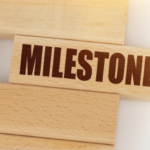
VLADGRIN / shutterstock.com
SAN DIEGO—The Next Accreditation System, the newest process for evaluating medical residency and fellowship programs and their participants, including future rheumatologists, was implemented in 2014 by the Accreditation Council for Graduate Medical Education (ACGME). The system introduced specialty-specific milestones designed to reflect significant points in professional development.
Milestones are defined by ACGME as a rubric for performance improvement in six core areas of medical practice: patient care, medical knowledge, practice-based learning and improvement, interpersonal and communication skills, professionalism, and systems-based practice. The milestones are accompanied by competency-based professional development outcomes that can be progressively demonstrated, documented and evaluated. They represent a change in how training programs approach curriculum development and the assessment of both trainees and training programs.
Through the evaluations of milestones by residents and fellows at the end of rotations, a lot of data are collected, evaluated and submitted to ACGME. The process is not just evaluative, but also formative, “providing granular detail of where trainees are at and how they can move forward,” Calvin R. Brown Jr., MD, professor of medicine and director of the rheumatology training program at Northwestern University, Chicago, said during the 2017 ACR/ARHP Annual Meeting Nov. 3–8. In this session, the Great Educational Debate: Milestones: Meaningful vs. Millstone, two veteran fellowship program directors, Dr. Brown and Simon Helfgott, MD, rheumatology fellowship director at Brigham & Women’s Hospital in Boston, explored the advantages and drawbacks of the training milestones approach for rheumatology fellowships.
For Dr. Brown, the problem with traditional graduate medical education (GME) is its dependence on what he described as a teabag model in which trainees are dipped into the hot water of the medical institution, with all of its faculty’s intellectual and scholarly rigor. After 24 months, when the tea is fully steeped, the trainee is deemed ready to practice medicine. “The teabag model is an antiquated approach,” Dr. Brown says. “I think we can do much better.”
ACGME’s new process calls for the specialty to put forth general competencies defining what a rheumatologist does.1 These competencies are spelled out through entrustable professional activities (EPAs) that describe the comprehensive abilities, knowledge and skills of a physician specialist who has attained mastery of the field.
“In rheumatology, we have defined 14 EPAs for our trainees,” Dr. Brown added. “The next question: How do we know our trainee is making progress on those 14 EPAs? The way we answer that is with the milestones.”



